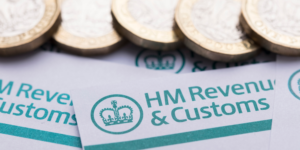Unincorporated businesses like sole traders and general partnerships have limited protection regarding their chosen business name. Whether they use their own given name or a trading name, someone else could potentially set up a business and trade under the same name.
The law of passing off may offer some assistance. Registering a trade mark can also provide more comprehensive protection. However, it is more common for business owners to form a limited company to protect their business name. We discuss all of these below.
Check if your preferred business name is available
When setting up any type of business, it’s important to check whether anyone else is currently using the business name you intend to register.
Your first port of call should be the company name availability checker at Companies House. You can also use 1st Formations’ free online company name checker, which provides the same results.
By entering your preferred name in either of these search tools, you can find out if any registered companies in the UK are using the same name or one that is very similar.
- Protect a company name with 1st Formations
- Guidelines for creating a limited company name
- How to build a brand for your business
1st Formations’ name checker tool will also tell you whether your chosen name contains any restricted or ‘sensitive’ words or expressions, whereas the Companies House name checker will not provide this additional information. You must seek permission to include restricted or sensitive words or expressions in a business name.
This check is essential when forming a company but equally valuable when setting up a sole trader business or general partnership.
You can perform further checks by:
- carrying out an internet search to see what results come up – you may find that another sole trader is using the same name or that the name has negative associations
- search the trade marks database and trade marks journal – these will tell you if someone else has registered or applied to register a trade mark in the UK that matches or is similar to your business name
- enter the name in social media platforms, such as Facebook, Instagram, and TikTok
- search the domain name database to check that it’s available to register as a domain for your business website and email addresses
You may find that a registered company or other business is already using the name or one that is similar. The business name you choose should be unique to avoid legal issues or simply causing confusion.
Set up a limited company to protect your business name
One of the best ways to protect your business name is to register a company name at Companies House. This is a viable option even for sole traders and general partnerships because you don’t need to trade through the company (but you can if you want to).
By setting up a company, no other UK company can use your registered name as their own. However, there are various company name rules you need to comply with, including the use of sensitive words and expressions.
Crucially, for the purposes of protecting a business name, the chosen name cannot be the same as or ‘too like’ the name of another company:
- ‘Same as’ name – this is where the only difference to an existing name is: (i) certain punctuation or special characters or (ii) words or characters that are commonly used in company names or similar in appearance or meaning to those in an existing name.
- ‘Too like’ name – if someone complains that a chosen name is too similar to an existing company name, Companies House will decide. If it is deemed to be ‘too like’ an existing name, the newly registered name may need to be changed.
To protect a business name, you can form a limited company through 1st Formations using our Reserve a Company Name package. This includes a London registered office, a London service address, and the filing of your first confirmation statement and dormant company accounts.
If you want to continue operating as a sole trader or through a general partnership rather than trading through the new company, you can simply make your company dormant. It’s an easy process.
Protect your business name with trade mark registration
Trade mark registration is another way to protect a business name. A trade mark can be words, sounds, logos, colours, or a combination of any of these.
Registering a trade mark gives you exclusive rights to market and sell products using the protected mark. You can also prevent others from using the same or similar marks to market their products.
Once you’ve chosen a business name, you should search the trade mark register to check if anyone has already registered a trade mark that matches or is similar to your business name.
You should also check trade mark applications accepted in the last week by searching the following:
- the Intellectual Property Office’s online trade marks journal – for UK trade marks and international trade marks that include the UK
- the Guernsey online trade marks journal – for Guernsey trade marks
All being well, you can apply to register a trade online to protect your business name. To do so, you’ll need:
- details of what you want to register – e.g. the words you want to use
- the personal or business details of the intended owner of the trade mark
- the types of products (known as ‘classes’ and ‘terms’) you intend to use your trade mark for – read the guidance on what to do before applying
After registering your business name as a trade mark, you can:
- take legal action against those who use the name without your permission (including counterfeiters)
- put the ® symbol next to your business name – this shows that it’s yours and warns others against using it
- sell and license your brand
Your trade mark protection will last for 10 years. You’ll need to renew it every 10 years for it to remain in force.
How does the law of ‘passing off’ protect my business name?
The common law of ‘passing off’ is the only form of automatic name protection available to unincorporated businesses. It relates to unregistered or ‘common law’ trade marks. These are marks that businesses use to distinguish their products from those of their competitors but haven’t been registered with the UK Intellectual Property Office (UKIPO).
Passing off occurs when someone intentionally or unintentionally ‘passes off’ their products as those belonging to another individual or business. It is a form of misrepresentation that can damage another person’s goodwill and cause them to experience financial or reputational harm.
This applies particularly to competing businesses that operate in the same industry sector with the same potential customers. Here’s an example of how it works:
If one business (X) is established and has generated a certain amount of ‘goodwill’ (i.e. brand reputation, alongside customers who trust the business, etc.), a new business (Y) should not be able to pass itself off as X (e.g. by using its name or copying its branding).
So, if X sells apples and trades under the name ABC, Y should not attempt to trick customers and gain market share by also calling itself ABC and selling apples. However, Y can legitimately trade under the name ABC if it sells oranges because it would be difficult to argue that Y is stealing the goodwill of X when it’s selling a different product.
The law of passing off is complex and often unsatisfactory because it’s not always easy to prove the intention to steal goodwill. Therefore, unincorporated businesses wishing to gain more protection for their business name will often decide to form a limited company.
Securing domain names
Registering a domain name is another great way to protect your business name. Simply registering your business name as a company name or trade mark doesn’t give you the automatic right to the same name as a domain.
You can use the domain for your website and business emails, which will help you build your brand identity and make it easier for people to find you online. Just imagine how disappointing and problematic it would be if someone else registered your business name as a domain.
It’s also a good idea to secure domain names with different extensions such as .com, .co.uk, .net, etc. This will give you extra protection and minimise the risk of someone hijacking or misusing your business name.
Monitoring for infringements
It’s important to monitor for any infringements relating to your business name, domain names, trade marks, and brand as a whole. You can do this by performing regular searches on:
- the Companies House search service
- the trade marks database
- domain name registries
- search engines (e.g. Google)
- social media platforms
- online marketplaces
Handling these continuous checks in-house can be challenging and time-consuming. Therefore, consider using a professional brand or trade mark monitoring service instead. The provider will do all the hard work, identifying any infringements related to your business and advising you on how to tackle them.
Thanks for reading
We hope you’ve found this post helpful and now understand how to protect your business name. Please get in touch if you’d like to speak to us about registering a company name. Our London-based team will be happy to help.
Please note that the information provided in this article is for general informational purposes only and does not constitute legal, tax, or professional advice. While our aim is that the content is accurate and up to date, it should not be relied upon as a substitute for tailored advice from qualified professionals. We strongly recommend that you seek independent legal and tax advice specific to your circumstances before acting on any information contained in this article. We accept no responsibility or liability for any loss or damage that may result from your reliance on the information provided in this article. Use of the information contained in this article is entirely at your own risk.













Join The Discussion